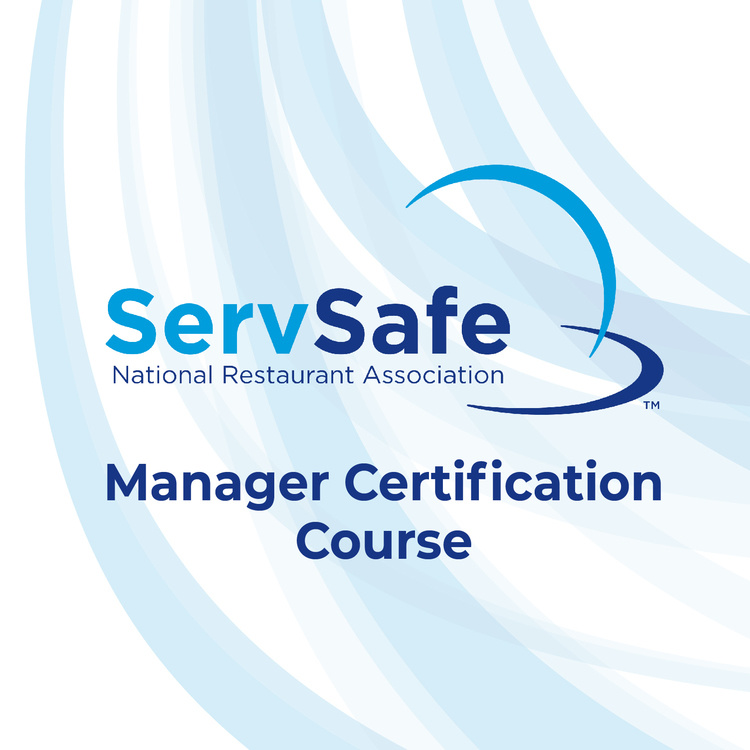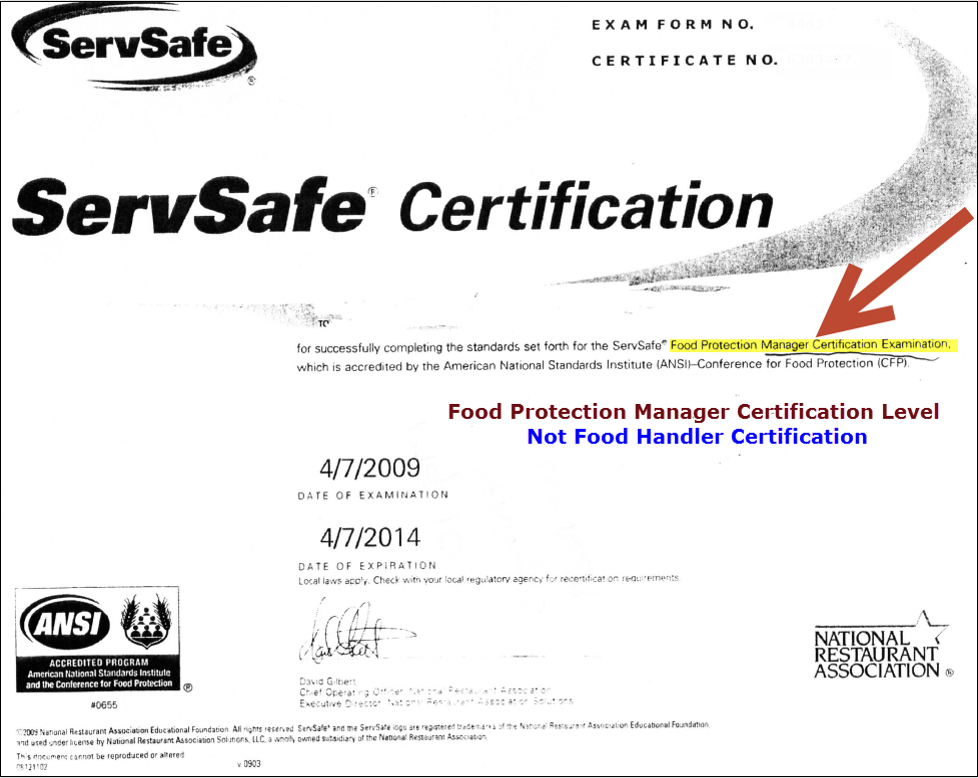Specialist Training for Food Manager Accreditation Made Simple
The value of food manager certification can not be understated, especially in an age where food security is vital. Specialist training programs have actually advanced to simplify the qualification procedure, giving essential knowledge and practical skills necessary for reliable food management.
Significance of Food Manager Accreditation
The significance of Food Manager Certification can not be overstated in today's food solution sector. This qualification symbolizes that food supervisors possess the important knowledge and skills to make certain food safety and security, keep health and wellness requirements, and support regulatory conformity. In an age where foodborne health problems can have severe consequences, the duty of a licensed food manager becomes critical in guarding public health and wellness.
Food Manager Qualification not just gears up people with the experience to mitigate and recognize food security risks yet likewise boosts the reputation of the facility. Customers are significantly discerning; they look for assurance that their eating experience is risk-free and hygienic. Accreditation functions as a mark of expertise that can draw in and retain clients.
In addition, a certified food manager can lead personnel training, cultivating a society of safety and accountability within the work environment (ServSafe Food Manager Certification). Investing in Food Manager Accreditation is a financial investment in high quality, safety and security, and the total success of food solution procedures.
Overview of Expert Training Programs
Expert training programs for food manager accreditation are developed to supply thorough education and learning on food safety and security techniques, governing conformity, and threat monitoring. These programs intend to outfit food solution specialists with the understanding and abilities needed to make sure risk-free food handling and preparation in different settings, consisting of dining establishments, providing solutions, and institutional food operations.
Usually, professional training programs include both theoretical and practical parts, enabling participants to engage with real-world circumstances. The educational program commonly includes important subjects such as foodborne ailments, appropriate food storage techniques, cleanliness protocols, and staff member training approaches. Moreover, these programs are often updated to straighten with the current market standards and laws, making sure that participants receive pertinent and present details.
Many programs use flexible shipment methods, consisting of in-person courses, on the internet training courses, or a hybrid method, dealing with different understanding preferences and timetables. Upon successful conclusion, individuals typically obtain certification, which is usually recognized by regional health departments and governing agencies, improving their job potential customers within the food solution sector. In general, specialist training programs play an essential duty in cultivating a culture of food security and conformity amongst food managers and personnel.
Secret Subjects Covered in Training
Food safety is a vital emphasis in food supervisor qualification training, encompassing a range of crucial subjects that ensure participants are fully equipped to manage food securely. Among the key subjects covered is the importance of personal hygiene, that includes appropriate handwashing methods and the significance of keeping tidiness in food preparation locations.
Furthermore, the training addresses foodborne illnesses, detailing the various virus that can pollute food and the signs and symptoms connected with these illnesses. Participants find out about the problems that advertise bacterial growth, which is vital for preventing break outs.
Temperature level control is another vital topic, highlighting the risk-free food preparation, continue reading this cooling, and storage temperature levels essential to lessen risks. The training additionally covers cross-contamination avoidance techniques, making sure that raw and cooked foods are managed appropriately to avoid harmful communications.
Additionally, food safety and security regulations and standards, such as those established forth by the FDA and local health and wellness departments, are discussed to supply a detailed understanding of conformity demands. Lastly, efficient parasite control steps are examined to protect food facilities from invasions that can compromise safety. Jointly, these subjects lay a solid foundation for secure food management methods.
Benefits of Professional Training
Exactly how can professional training enhance food safety and security techniques within an establishment? Expert training furnishes food managers with comprehensive knowledge of food safety and security guidelines, sector criteria, and ideal practices. her comment is here This fundamental click to read understanding is essential for keeping a tidy and safe cooking atmosphere, eventually lowering the threat of foodborne health problems.
Additionally, professional training fosters a positive strategy to food security by stressing safety nets and danger evaluation. Supervisors educated by industry professionals can successfully identify possible dangers and apply approaches to minimize them. This not just protects clients however additionally enhances the establishment's credibility and reliability.
Additionally, expert training motivates a culture of continual renovation. Food supervisors who involve in recurring education are much better prepared to adapt to new guidelines and trends in the food service sector. This adaptability can lead to improved operational effectiveness and expense savings.


Actions to Attain Accreditation
Achieving accreditation in food monitoring needs an organized method that includes a number of essential steps. First, people have to choose a certified training program that supplies thorough coursework in food safety and security, management, and hygiene principles. These programs typically offer useful resources, including study products and technique tests
Following, prospects need to proactively engage in the training sessions, whether on the internet or in-person, to improve their understanding of vital topics such as foodborne illnesses, individual health, and correct food storage space methods. Involvement in discussions and sensible exercises can even more reinforce learning.

As soon as effectively ready, prospects can schedule and take the exam. Effective completion usually calls for attaining a specific passing score, which demonstrates a comprehensive grip of food safety and security requirements.
Final Thought
In summary, specialist training for food supervisor certification plays an important function in making certain food safety and conformity with regulatory criteria. The organized programs give crucial knowledge and practical abilities essential for taking care of foodborne ailments and hygiene protocols effectively. By facilitating accessibility and boosting occupation potential customers, these training initiatives add considerably to public health. Ultimately, attaining food supervisor certification through specialist training not just raises individual expertises yet also cultivates a much safer food atmosphere for all.

Expert training furnishes food supervisors with thorough expertise of food safety regulations, industry standards, and ideal techniques.In recap, specialist training for food supervisor qualification plays a critical function in making sure food safety and security and conformity with regulative requirements (Manager Certification Training). Inevitably, achieving food manager certification through specialist training not just raises individual proficiencies however also fosters a more secure food setting for all